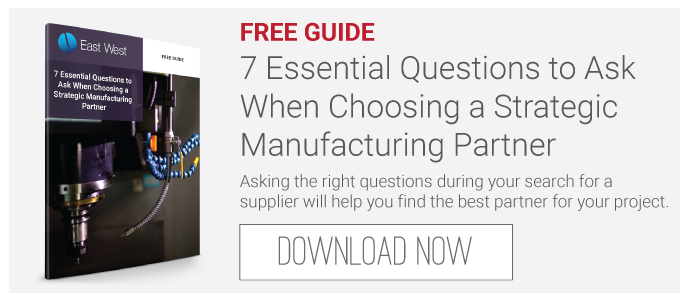Studies by Planning Perspectives, Inc. (PPI), determined a causal link between a company’s profitability and the quality of the relationships it has with its suppliers. Dr. John W. Henke, Jr., president and CEO of PPI, specializes in studying OEM buyer/supplier relationships in the automotive and 17 other industries. His company publishes an annual ranking of six major North American automakers called the Working Relations Index®.
The most recent Working Relations Index® (2023) says "with market uncertainty increasing, manufacturers depend on strong supplier relations to provide operational flexibility, engineering and manufacturing launch support, business risk mitigation, and differentiating product features."
Henke said that developing better, more collaborative, relationships with suppliers is good business. “Oftentimes, when companies are in financial trouble or want to improve their profits, they turn to squeezing suppliers for price reductions in the belief that this will help the company’s bottom line,” he said. “Our studies over the years have proven conclusively this is not only the wrong approach, it is an approach that destroys supplier relations. Strong, profitable industry-leading companies are those with the strongest, collaborative supplier relations. OEMs cannot simply focus on supplier price reductions if they expect to get the best from their suppliers.”
So it's proven that having a good relationship with your supplier is good for the bottom line. How is that achieved?
Business relationships are like all other relationships. They are built over time. Typically the strongest relationships are those built on shared values and common goals. What could be a better goal than the win-win achieved in the financial success of your customer?
We've identified some characteristics you'll find in good suppliers, which in turn helps build strong supplier relationships.

Four Characteristics of a Good Supplier
1. Capability - You’re looking for a supplier who can make your part or product out of a specific material via a specific process.
- Do they have the capability to do that?
- Do they have experience in multiple manufacturing processes?
- Can they do more than what you need right now?
- Will they be able to scale up with you?
2. Quality - You’re looking for a supplier who can make your part/product at the highest quality and do it consistently.
- What is their step by step quality process?
- Can you read it?
- What sorts of certifications and testing can you do?
3. Transparency - Customers accept there will be hiccups in the product development process, what they also want to know is how their supplier will react when the hiccups start. You want someone to fix the problem, not one looking to fix the blame. You’re looking for a supplier that you trust, that tells the truth and takes responsibility. Find an experienced supplier with good references, especially when it comes to transparency about business practices.
- When can you visit their facility/facilities? (Especially if you’re using an overseas supplier.)
- Can you meet the people who are in charge of making your product?
- What about their suppliers? Are you sure they’re all using ethical business practices?
4. Communication - You’re looking for a supplier who will respond when you call/email. You’re looking for a supplier that keeps you in the loop. Consistent and timely communication is vital to good supplier relationships. It’s a good idea to let your supplier know how frequently you’d like to hear from them, especially when it comes to delays or manufacturing challenges.
- Will you answer when I call or email?
- How frequently will I get report?
- Who is my point of contact?
- Will my point of contact speak English? (If you’re working with an overseas supplier, you should have a point of contact that speaks better than basic English.)
There are a lot of suppliers from which to choose. It can seem daunting to think about going through the process of finding the right one. Look for a supplier that does the "little things" well. Your supplier should relieve pain, not cause it!
Breaking Up Is Hard to Do
What if you're working with a supplier and things aren't going well? If you're sourcing a commodity, a basic thermostat for example, it would probably be easiest to switch suppliers. But if it's something specially made for you, you might have a difficult decision ahead.
Explain your problem to your supplier. See if they want to try to make it work. If so, set the parameters - how long you'll give them to make X amount to Y specification. If you do end up leaving your current supplier, it's going to cost you time and money, especially if you have to have new tooling done.
One thing you may want to consider is finding one company to handle all the details for you. A manufacturer with experience in multiple materials and processes has already gone through the process of culling through suppliers, leaving you free to do what you really want to do - Grow Your Business!




.jpg?width=176&height=56&name=MR_associatedNetwork_logo%20(1).jpg)